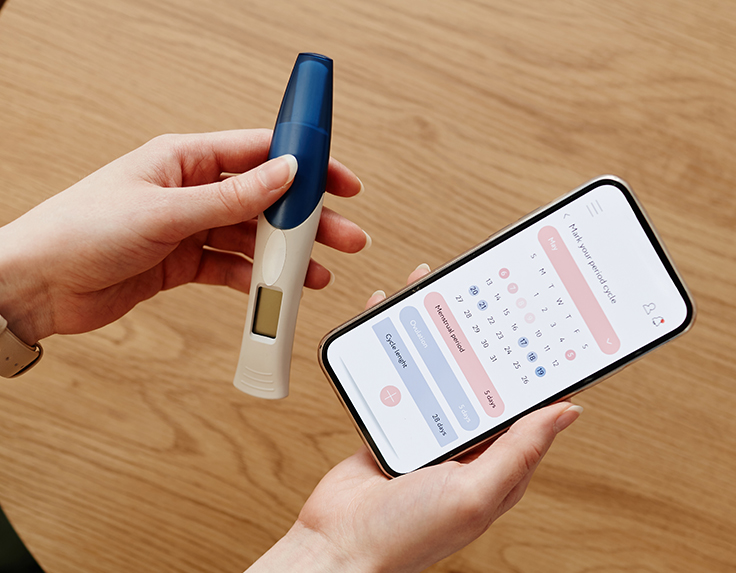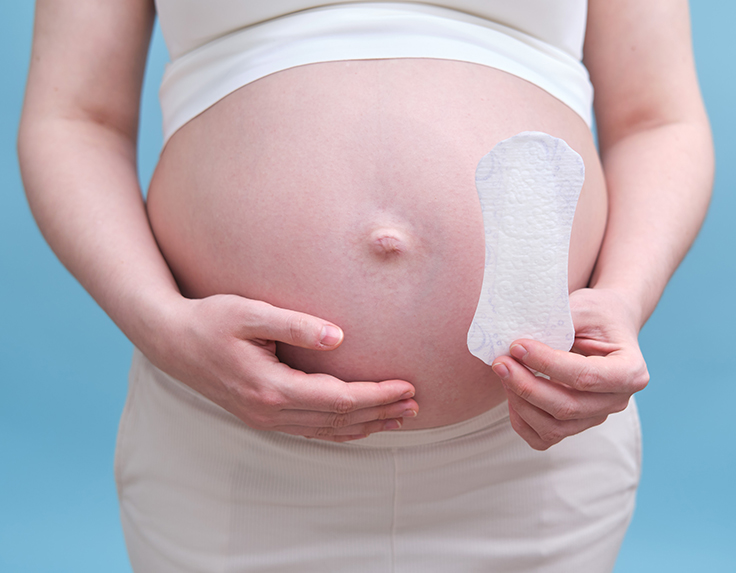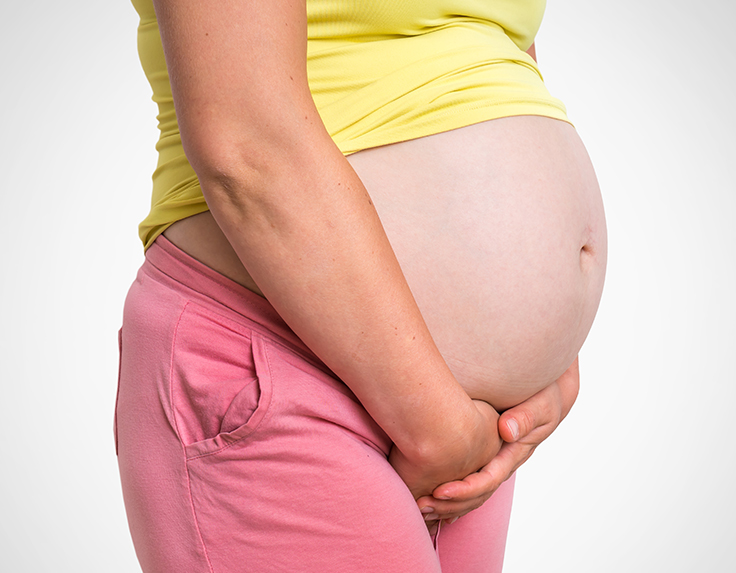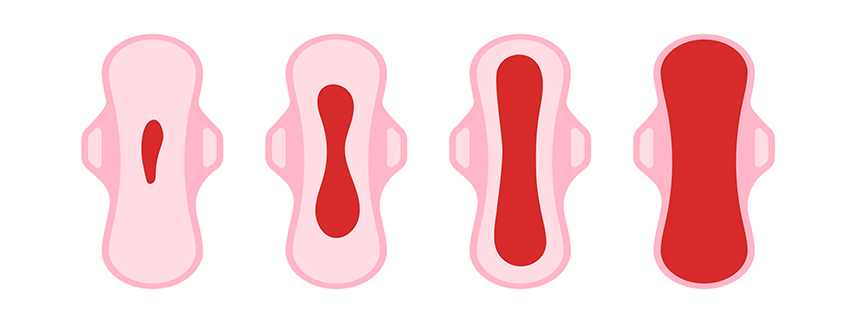Conceiving a child is an exciting and important milestone for many couples. However, it can also be a complicated process. If you are trying to conceive, there are many things that you should consider to increase your chances of success.
The menstrual cycle is one of the many factors that you should keep a track of while conceiving. Understanding your menstrual cycle is very crucial when trying to conceive. The menstrual cycle is the process by which a woman’s body prepares itself for pregnancy each month. It involves a series of hormonal changes that result in the release of an egg from the ovaries known as ovulation and the thickening of the lining of the uterus in preparation for a fertilized egg. Ovulation is essential in conceiving because it is the process by which a woman’s body releases a mature egg from the ovary, making it available for fertilization by sperm. The timing of ovulation is crucial for pregnancy. Women are most fertile during ovulation, which occurs approximately 14 days before the next menstrual cycle starts.
Ovulation is necessary for fertility and conception. Understanding ovulation and identifying your fertile window can help increase the chances of getting pregnant.
What is late ovulation?
Ovulation is the time when a woman is most fertile and has the highest chance of conceiving. It is a crucial part of the female reproductive system. It is the process by which the ovary releases a mature egg into the fallopian tube, where it is fertilized by sperm. However, ovulation doesn’t happen at the same time for every woman. In some cases, ovulation may occur later than usual, which can affect a woman’s chances of getting pregnant.

Late ovulation is defined as ovulation that occurs later than day 21 of a woman’s menstrual cycle. In an average menstrual cycle of 28 days, ovulation occurs around day 14. The time frame in which an egg can be fertilized by sperm is shorter. Sperm can survive in the female reproductive tract for up to five days, but an egg only survives for about 24 hours after ovulation. This means that if ovulation occurs later than usual, there is less time for sperm to fertilize the egg before it degenerates. Late ovulation in your menstrual cycle can be normal and doesn’t necessarily mean that there is anything wrong with your reproductive system as the timing of ovulation can vary from person to person and cycle to cycle. However, it can make it more difficult to get pregnant because there is less time for the fertilized egg to implant in the uterus before the next menstrual cycle starts.
It is important to identify the underlying cause of late ovulation in order to address any potential fertility or health concerns.
What are some possible causes of late ovulation?
Late ovulation can occur for a variety of reasons, including stress, hormonal imbalances, certain medications, and medical conditions which are described below-Stress: High levels of stress can interfere with the body’s hormonal balance, including the hormones that control ovulation. This can lead to late ovulation or even the absence of ovulation.
- Hormonal imbalances: Hormonal imbalances, such as those caused by thyroid disorders or Polycystic Ovary syndrome (PCOS), can lead to irregular menstrual cycles
- Age: As a woman ages, the quality and quantity of her eggs decline, which can lead to later ovulation or even the absence of ovulation.
- Medications: Certain medications, such as antidepressants or antipsychotics, can affect ovulation and cause it to occur later than usual.
- Weight changes: Significant weight gain or loss can affect ovulation and cause it to occur later than usual.
- Medical conditions: Medical conditions such as ovarian cysts, endometriosis, and uterine fibroids can interfere with the ovulation period.
It’s important to note that late ovulation can occur occasionally without any underlying medical condition or reason, and may not necessarily indicate a fertility problem. However, if you ovulate later than expected, your fertile window will be shorter, and you may have less time to conceive.
How does late ovulation affect your chances of getting pregnant?
Late ovulation can significantly affect fertility. Ovulation is the process by which the ovaries release a mature egg, which can then be fertilized by sperm. If ovulation occurs later than expected, it can reduce the chances of conception.
Late ovulation can affect fertility in several ways:
- Shortened fertile window: When ovulation occurs later than expected, it can shorten the fertile window. This means that there is less time for sperm to fertilize the egg, reducing the chances of conception.
- Irregular cycles: Late ovulation can lead to irregular menstrual cycles, which can make it difficult to predict when ovulation will occur. This can make it more challenging to time intercourse correctly to increase the chances of conception.
- Polycystic Ovary Syndrome: Leading to hormonal imbalances, late ovulation can affect fertility and cause polycystic ovary syndrome (PCOS). If you are concerned about your fertility, it is always a good idea to speak with your healthcare provider to get more information and advice tailored to your specific situation.
- Quality of eggs: As a woman ages, the quality of her eggs can decline, which can make it more difficult to conceive. Late ovulation can also lead to a lower number of eggs being released, which can further reduce the chances of conception
Ovulation plays a crucial role in pregnancy. It is the process by which a woman’s body releases a mature egg from the ovary, making it available for fertilization by sperm. If there is no ovulation, there is no egg available to be fertilized, and conception cannot occur. However, understanding your menstrual cycle, tracking ovulation, proper medication and maintaining a healthy lifestyle can help optimize your chances of conception and healthy pregnancy.
Apart from above stated information, there is a list of frequently asked questions that you should be aware of.
FAQs
Can early ovulation affect your chances of getting pregnant?
Yes, early ovulation can affect your chances of getting pregnant, just as late ovulation can. Early ovulation occurs when the release of an egg from the ovary occurs earlier in the menstrual cycle than usual. This means that the fertile window may be shorter than usual, reducing the chances of fertilization and conception.
How can I fix late ovulation naturally?
There are several natural ways to regulate late ovulation, such as maintaining a healthy balanced diet, managing stress levels, maintaining a proper sleep schedule, taking proper medication and maintaining healthy body weight by exercising regularly but always consult your doctor before making any change in your diet and supplement.
Is it okay to ovulate late in the cycle?
Ovulating late in your menstrual cycle is not necessarily a cause for concern, as the timing of ovulation can vary from person to person and cycle to cycle. However, it can affect your chances of conceiving if you are trying to get pregnant.





































